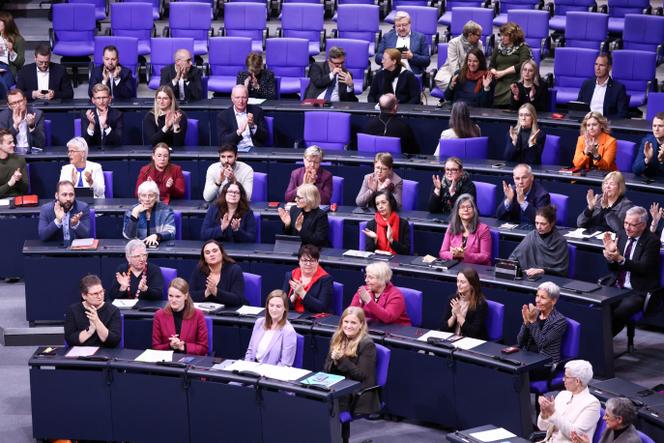

LETTER FROM BERLIN

This part of German law is referred to as "Paragraph 218": "Whosoever terminates a pregnancy shall be liable to imprisonment not exceeding three years or a fine." However, a group of MPs has begun efforts to decriminalize abortion, hoping to take advantage of a brief parliamentary window created by the collapse of the current coalition on November 6, ahead of the federal election on February 23, 2025, which will elect a new Bundestag.
Abortion is illegal in Germany, although in practice it is not prosecuted if carried out within the first 12 weeks of pregnancy after a medical consultation. As the procedure is illegal, it is not reimbursed by social security. According to the Federal Statistical Office, around 106,000 abortions were reported in Germany in 2023, compared with 243,600 in France.
Supported by no fewer than 328 MPs from several parliamentary groups, a proposed law aims to legalize abortion up to the 12th week of pregnancy and make it possible beyond that in cases of specific medical issues. It would also make the procedure reimbursable, while still requiring medical approval.
The MPs behind the bill, Social Democrat Carmen Wegge and Green Party member Ulle Schauws argue that criminalizing abortion deters doctors, with fewer and fewer willing to perform them. This threatens women's access to the procedure.
"Criminal law not only leads to the stigmatization of women and doctors, it also has dramatic consequences for the healthcare situation in this country," said SPD politician Wegge during a debate in the Bundestag on December 5.
Backed by Chancellor Olaf Scholz and his economy minister, Robert Habeck, the proposal has been pushed for by MPs from the SPD and the Greens, as well as some from the left-wing party Die Linke and the Sahra Wagenknecht Alliance, a new political formation created by a left-wing defector. A minimum of 367 votes are required to amend the law. However, the collapse of the coalition on November 6, which included the Social Democrats, the Greens and the liberal FDP, makes it easier to secure a majority. The FDP's departure, which had blocked a similar initiative in the spring, has freed up the remaining members of the ruling coalition.
"The chance to move things forward in this configuration is historic," said Green MP Schauws.
On the other hand, one thing seems certain: If the Christian Democrats of the CDU/CSU gain a majority in the Bundestag on February 23, as the polls predict, there will be no change in the law. The conservatives have traditionally opposed reforms like this, despite societal shifts on the issue in Germany. According to a poll by the Forsa Institute for RTL and NTV, 74% of Germans support unrestricted access to abortion during the first 12 weeks of pregnancy. Seizing the opportunity presented by the proposed law, several thousand people marched in Berlin on Saturday, December 7, responding to the call of various organizations to demand the legalization of abortion.
You have 47.05% of this article left to read. The rest is for subscribers only.
